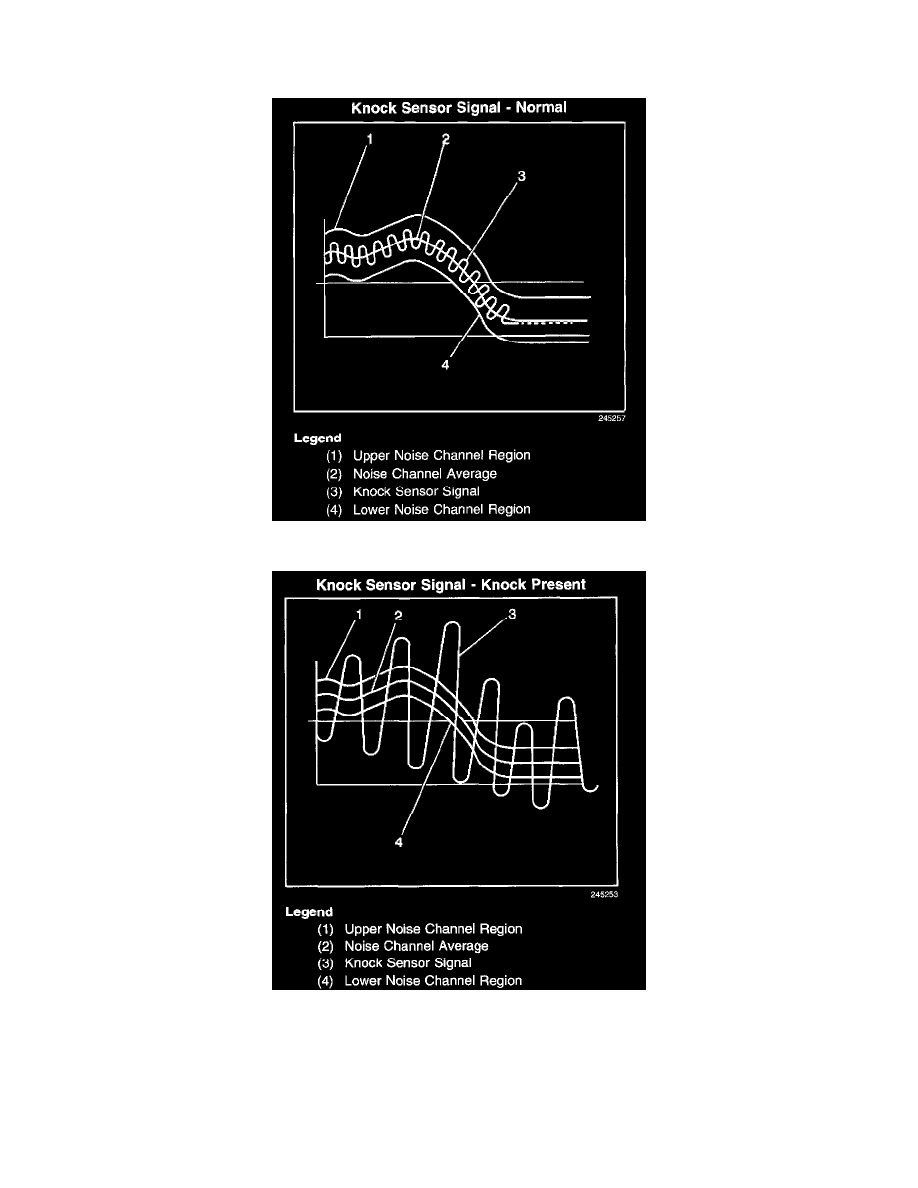Astro Van 2WD V6-4.3L VIN W (2001)

Knock Sensor: Description and Operation
Operation
Knock Sensor Signal - Normal
Knock Sensor Signal - Knock Present
The PCM uses a KS in order to detect abnormal vibration in the engine, such as detonation, or spark knocking. Mounted in the engine block, the KS
produces an AC signal at all engine speeds and loads. Next, the PCM adjusts the spark timing based on the amplitude, and on the frequency of the KS
signal. The PCM calculates a normal level of engine noise, also known as the noise channel, from the KS signal. The noise channel consists of an upper
and lower region. A normal KS signal should vary within the noise channel as shown in the Knock Sensor Signal - Normal. A KS signal outside the noise
channel, as shown in Knock Sensor Signal - Knock Present, indicates spark knock. The PCM will then adjust the spark timing to eliminate the engine
knock.
